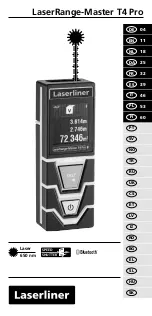
Tel: 886.909 602 109 Email: [email protected]
167
10.1.5 Variable parameters
Parameters
Means
Default Unit
(Optional)
Acceptable Units
<integer>
An integer value
---
---
<real>
A floating point number
---
---
<freq>
A positive rational number
Hz
Hz, kHz, MHz, GHz
<bandwidth>
<time>
A rational number
seconds
ks s, ms, us, ns
<seconds>
<ampl>
A rational number
dBm
dBm, dBmV, dBuV
<rel_power>
A positive rational number
dB
dB
<rel_ampl>
<string>
characters
A series of alpha numeric
---
---
10.1.6 Block program data
Some parameters consist of a block of data. There are a few standard types of block data. Arbitrary blocks of
program data can also be used. <trace> Is an array of rational numbers corresponding to displayed trace data.
<arbitrary block data>
It consists of a block of data bytes. The first information sent in the block is an ASCII header beginning with #.
The block is terminated with a semi-colon. The header can be used to determine how many bytes are in the data
block. There are no units.
Block data example:
Suppose the header is #512320.
The first digit in the header (5) tells you how many additional digits/bytes there are in the header.
The 12320 means 12 thousand, 3 hundred, 20 data bytes follow the header.
Divide this number of bytes by your current data format (bytes/data point), either 8 (for real, 64), or 4 (for
real,32). For this example, if you’re using real64 then there are 1540 points in the block.
10.2 Instructions
10.2.1 Common command
Command
Means
*RST
Set instrument reset
*IDN? <string>
Get serial number
*OPT
Get option information







































